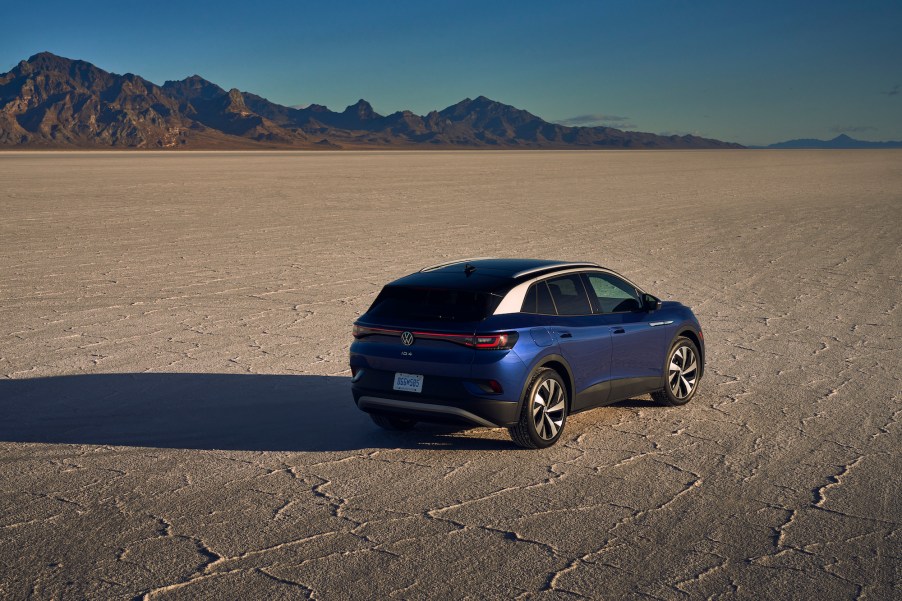
2021 Volkswagen ID.4 vs. 2020 Kia Niro EV — Which EV Deserves Your Money?
More drivers are considering switching from gas to electric, but finding affordable models is still a concern. Consumers also want enough electric range to get to their destinations and back without frequent charging. The 2021 Volkswagen ID.4 looks like it might fill both of those needs nicely, but it has some competition.
The 2020 Kia Niro EV has made a positive impression on critics for its value and performance. However, Car and Driver shows that one of these EVs easily tops the other.
Driving the 2021 Volkswagen ID.4
In C/D’s opinion, the Volkswagen ID.4 provided the better driving experience overall. Though it doesn’t have the quickest acceleration from the get-go, its power delivery is so smooth that drivers won’t mind the wait. The ID.4 also boasts a quiet interior that isn’t easily jostled by bumps in the road.
The ID.4 is powered by a 201-hp motor paired with a 77-kWh battery pack capable of 250 miles. However, during C/D’s official highway-only driving test, the ID.4 had a range of only 210 miles. Its battery also needs more power to get the same range as the Kia Niro EV. However, C/D found that the ID.4’s battery recharges faster.
You also can’t turn off stability control while driving, which hampers its performance potential. Still, C/D’s testers loved riding on its 20-inch wheels. It also provides a comfortable interior and ample cargo space, with over 30 cubic feet behind the rear seats.
In addition, the Volkswagen ID.4 features an all-new infotainment system, complete with a bright 12-inch touchscreen. Disappointingly, the system is slow and difficult to navigate, C/D reported. On the plus side, it comes with plenty of standard convenience and safety tech.
According to Volkswagen, the ID.4 retails for $39,995. However, C/D’s test model ended up costing $45,190 with options. And the 1st Edition model, already sold out, costs $4,000 extra.
How the 2020 Kia Niro EV compares
The Kia Niro EV is definitely quicker off the starting line, reaching 60 mph in 6.2 seconds. It accomplishes this with an electric motor capable of 201 hp and 291 lb-ft of torque. Like the Volkswagen ID.4, the Niro EV fell somewhat short of its estimated range during highway driving.
Though the Niro was more efficient than the ID.4, its overall handling didn’t impress C/D. Also, its smaller tires make a lot of noise when pushed to their limits, requiring more braking distance. However, its regenerative braking still shines when this EV travels at a leisurely pace.
The Kia Niro EV also offers a quiet ride, but some might dislike the driver’s seat’s high position. The rear seats aren’t as roomy as the ID.4’s seating but are still comfortable. Testers also thought the Niro’s interior has too many hard plastics at its price point.
And cargo room is lacking compared to the ID.4, and the rear seats don’t fold flat. The infotainment screen is also smaller, but C/D had no complaints about its functionality.
The Kia Niro EV EX retails for $39,090, while the EX Premium costs $44,590. C/D’s testers ordered more options, which brought their Niro EV’s total cost to a whopping $47,145.
The 2021 Volkswagen ID.4 is the better choice
The Volkswagen ID.4 and Kia Niro EV are evenly matched in pricing and range. However, the ID.4’s ride is more balanced, and it boasts a better interior. Though Kia Niro EV might be more exciting to drive, it needs improvement in other areas.


